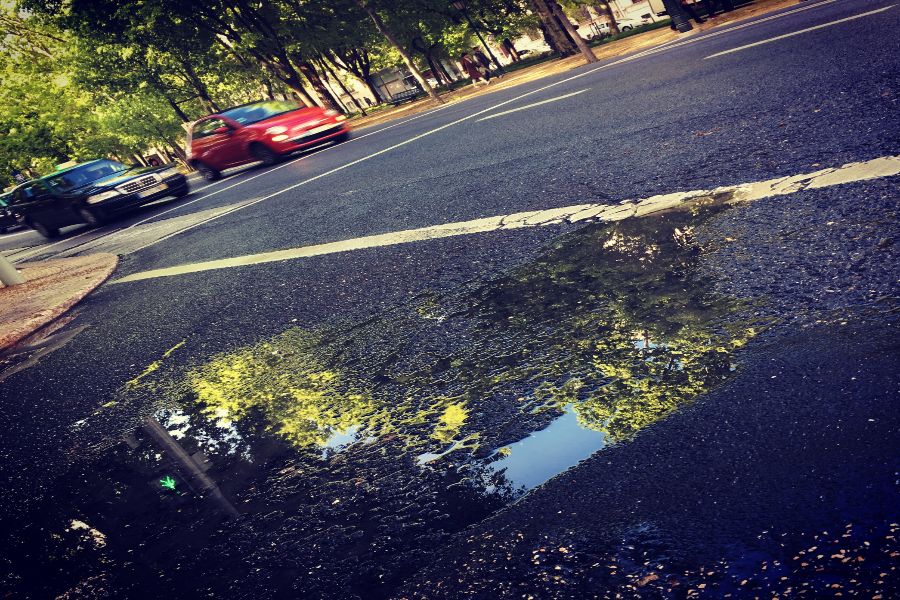June 17, 2021
No other means of distraction from the essence of me

Garage sales are great opportunities on both sides of the table.
Buyers can find clothes, sports equipment, musical instruments, books, furniture and other useful items at a remarkably low price. It’s all about the hunt.
Meanwhile, sellers can purge, clean house, free up space, organize their life, and even make a few bucks. Plus it’s fun for the whole neighborhood to turn the street into a hotbed of haggling like a middle eastern bazaar.
On the other hand, have you ever actually delved into the psychology of garage sales? Have you ever found yourself standing in a stranger’s carport, flipping through a smelly box of yellowing comic books from the seventies, and felt suddenly overwhelmed by sadness?
That’s happened to me on multiple occasions. And here’s my theory.
Garage sales are essentially public collages of the many phases of people trying to distract themselves from their pain.
Once this realization occurred to me, it’s become impossible for me to see anything else. Looking at a hot room filled with broken trinkets, permanently locked file cabinets, hopelessly obsolete computers, barely used musical equipment and other abandoned hobbies, it just breaks my heart. Makes me want to hug people and whisper in their ear, hey man, it’s really hard to be in so much pain, but you’re not alone, and it’s going to be okay.
Because there’s nothing more humiliating than the last phase you went through.
I think about this anytime I’m scouring through my closet or garage, looking at all my failed attempts to run from my pain. It’s so embarrassing. What part of me thought that leather cowboy hat looked good on me?
But it’s a distinctly human habit. Distraction is how our brains deal with suffering. Our species has an infinite penchant to fool, trick and divert ourselves from our real feelings. It’s emotional escapism, and we do it better than anyone.
We use the distraction of excitement so we can forget our problems. Frantically searching for something, anything, to engross us away from our immediate, complex and awful reality.
It’s no wonder the modern business model of journalism changed from presenting the information to manipulating our brains. Why else would people read headlines?
And yet, we can still stand up for ourselves here. We can still be vigilant about where we invest the precious resource of our attention. And we can ignore the immediate reward of distraction in favor of longer term benefits like meaning and fulfillment.
Gillette highlighted this issue in his hilarious and inspiring book about intermittent fasting as a strategy for losing weight, but also gaining happiness:
Eating on an airplane is supposed to be a distraction. It’s an activity. It doesn’t matter that the food is shitty, it’s something to do. Except it does matter. And there are much better distractions that aren’t really distractions but life. There are things you can do on a plane that you really want to do. Without food, flying is just an excuse to read and write and have time to yourself. All the bugs are actually features. Not eating at airports and on planes is the greatest.
What’s your favorite way to distract yourself from your pain?
And for the record, distraction isn’t always a bad thing. Sometimes it has significant survival value. Sometimes it’s evolutionarily advantageous and spiritually indispensable to amuse and distract ourselves to forget our own emptiness.
However, what is seductive in its irrationality can actually keep us from confronting our more fundamental issues. Distractions can estrange us from our heart.
On the other hand, if we can become the kind of people who are willing to face everything with no distractions or avoidance mechanisms, it’s amazing how vital and alive we can feel. If we can learn to care more about our effort than we do about all that digital chickenshit vying for our attention, there’s no stopping us.
If we can build a mental stronghold that no interruption can breach, then there’s no telling what kind of positive impact we can have on the world.
We may have fewer trinkets for our garage sale, but we’ll have a bigger inventory of memories of a life well lived.
How well are you coping with ceaseless inflow of distractions and distresses bidding for your time, attention, and emotional involvement?

